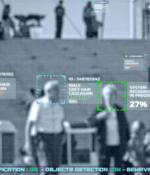Security News

Entrust and SYNNEX offer Entrust nShield HSMs and cybersececurity solutions across the US and Canada
Entrust announced a master distributor agreement with SYNNEX to offer its comprehensive range of Entrust nShield hardware security modules and cybersecurity solutions to customers across the United States and Canada. This North America distribution agreement with SYNNEX provides its resellers with Entrust nShield HSMs to protect customer data and secure emerging technologies such as cloud, IoT, blockchain, and digital payments.

Canadian authorities have found that the collection of facial-recognition data by Clearview AI is illegal because it violates federal and provincial privacy laws, representing a win for individuals' privacy and potentially setting a precedent for other legal challenges to the controversial technology. A joint investigation of privacy authorities led by the Office of the Privacy Commissioner of Canada came to this conclusion Wednesday, claiming that the New York-based company's scraping of billions of images of people from across the Internet represented mass surveillance and infringes on the privacy rights of Canadians, according to a release the Office posted online.

US facial recognition technology firm Clearview AI illegally conducted mass surveillance in breach of Canadians' privacy rights, Canada's privacy commissioner said Wednesday following an investigation. "What Clearview does is mass surveillance and it is illegal," Privacy Commissioner Daniel Therrien told a teleconference.

Canadian Prime Minister Justin Trudeau - under pressure from the opposition to ban Huawei from the country's 5G networks - refused to say Tuesday when he might make his decision, or if it would come before year's end. "We will continue to trust our security agencies and experts when it comes to making this important decision on how to protect Canadians and our businesses in an increasingly interconnected world," he said.

State-sponsored programs from China, Russia, Iran and North Korea pose the greatest high-tech threats to Canada, a report from the nation's authority on cyber security warned Wednesday. "The number of cyber threat actors is rising, and they are becoming more sophisticated", the Canadian Centre for Cyber Security said.

The government of Canadian Prime Minister Justin Trudeau on Tuesday presented a draft law that would impose major fines on companies that violate privacy law by misusing the personal data of their customers. Trudeau said the new law would stipulate the highest fines imposed among Group of Seven nations for privacy violations.

The body of a man found shot inside a burned out vehicle in Canada three years ago has been identified as that of Davis Wolfgang Hawke, a prolific spammer and neo-Nazi who led a failed anti-government march on Washington, D.C. in 1999, according to news reports. A key subject of the book Spam Kings by Brian McWilliams, Hawke was a Jewish-born American who'd legally changed his name from Andrew Britt Greenbaum.

The article goes on to talk about replacement surveillance systems from the Canadian company Octasic. Octasic's Nyxcell V800 can target most modern phones while maintaining the ability to capture older GSM devices.

The Kremlin-backed APT29 crew, also known by a variety of other names such as Cozy Bear, Iron Hemlock, or The Dukes, depending on which threat intel company you're talking to that week, is believed by most reputable analysts to be a wholly owned subsidiary of the FSB, modern-day successor to the infamous Soviet KGB. NCSC ops director Paul Chichester said in a statement: "We condemn these despicable attacks against those doing vital work to combat the coronavirus pandemic." Foreign Secretary Dominic Raab added: "It is completely unacceptable that the Russian Intelligence Services are targeting those working to combat the coronavirus pandemic. While others pursue their selfish interests with reckless behaviour, the UK and its allies are getting on with the hard work of finding a vaccine and protecting global health."

Britain, the United States and Canada accused Russian hackers on Thursday of trying to steal information from researchers seeking a coronavirus vaccine, warning scientists and pharmaceutical companies to be alert for suspicious activity. Intelligence agencies in the three nations alleged that the hacking group APT29, also known as Cozy Bear and said to be part of the Russian intelligence services, is attacking academic and pharmaceutical research institutions involved in COVID-19 vaccine development.